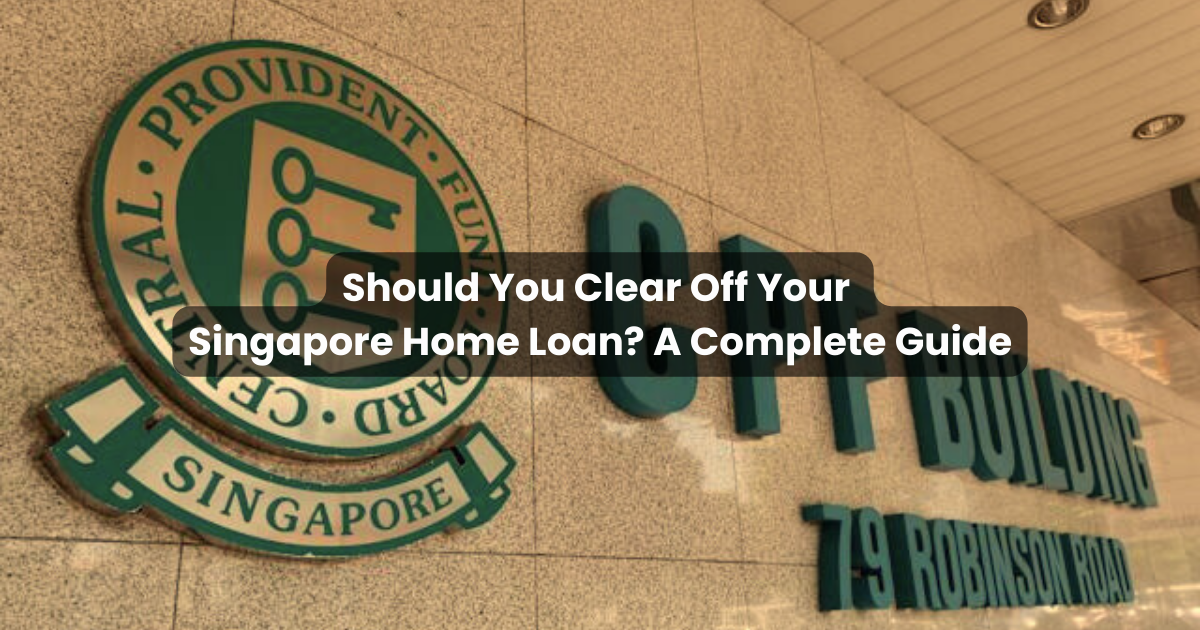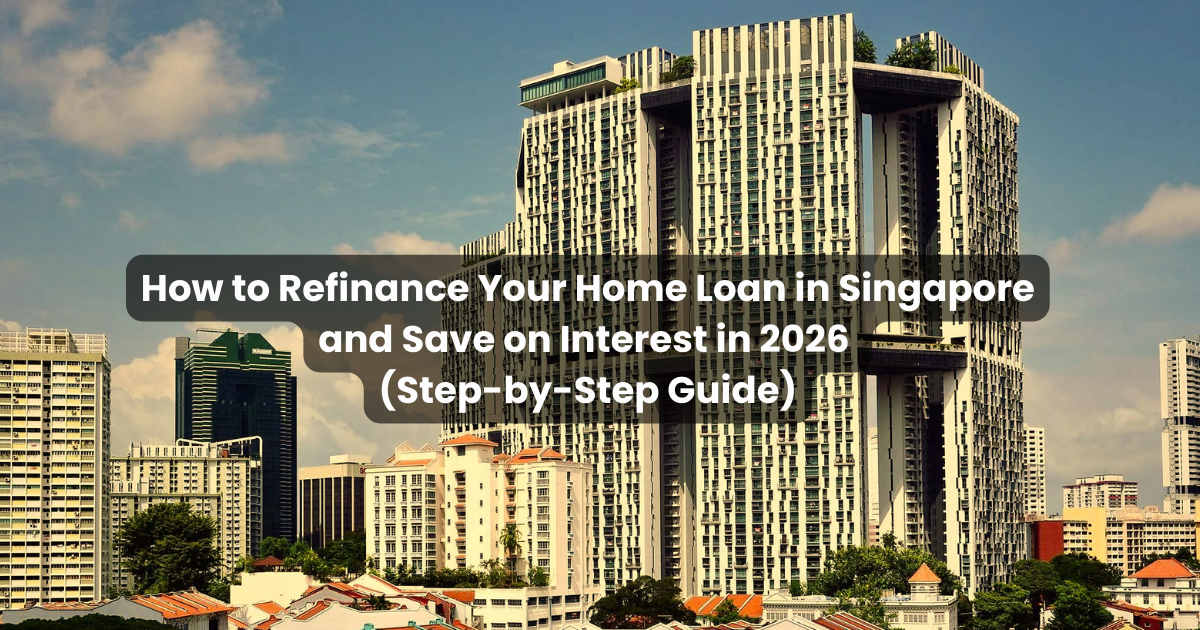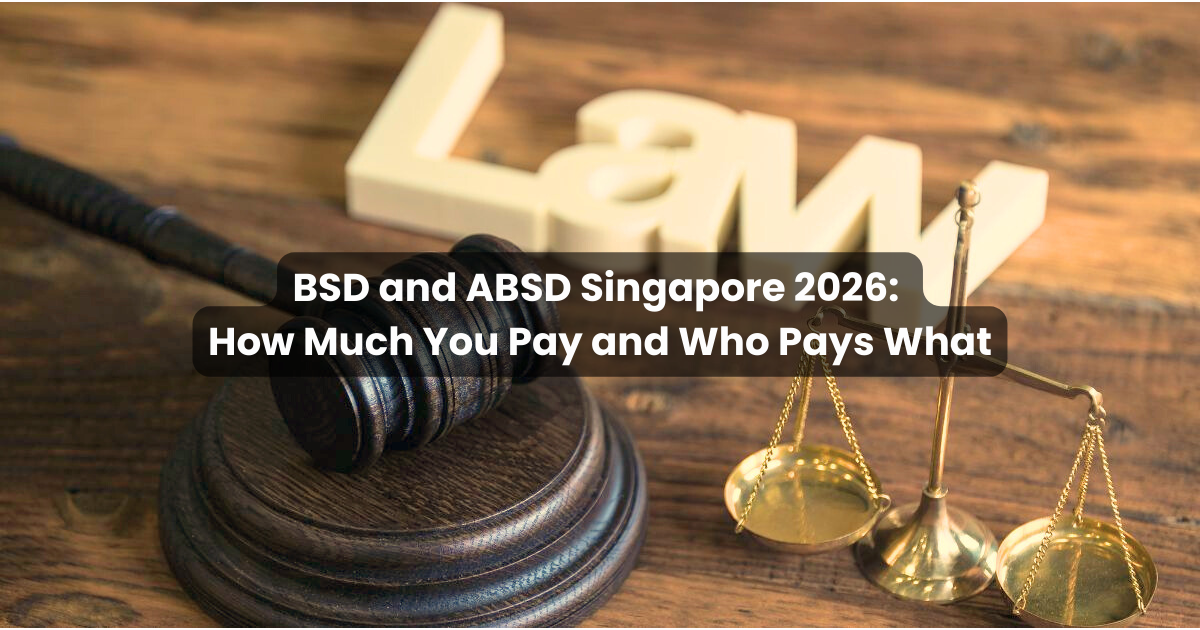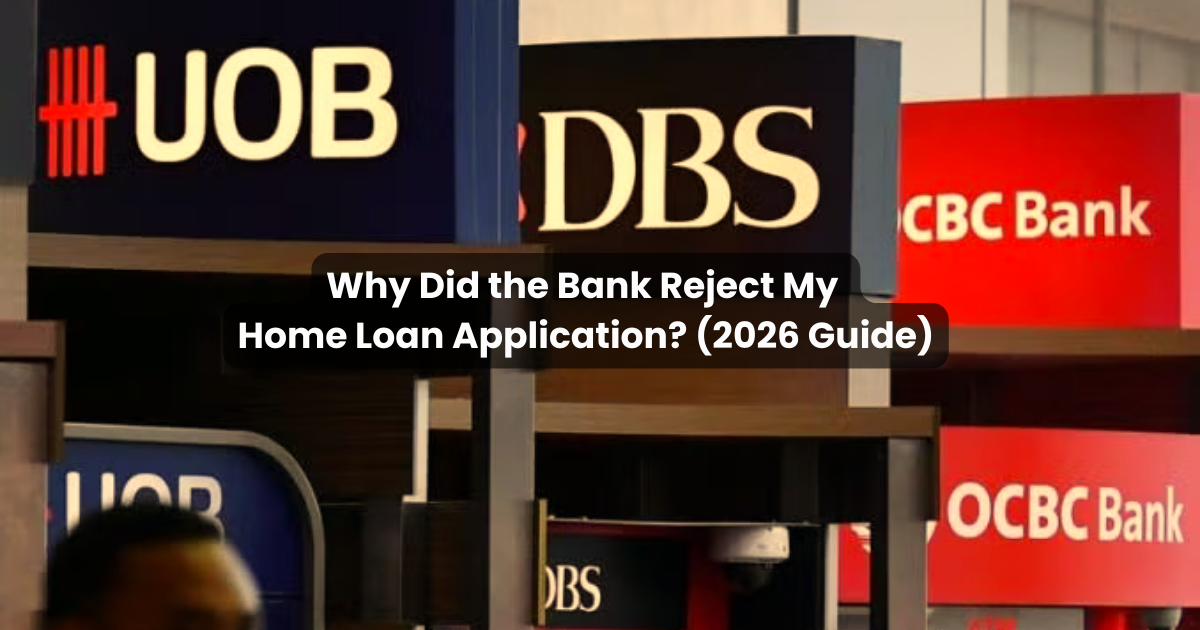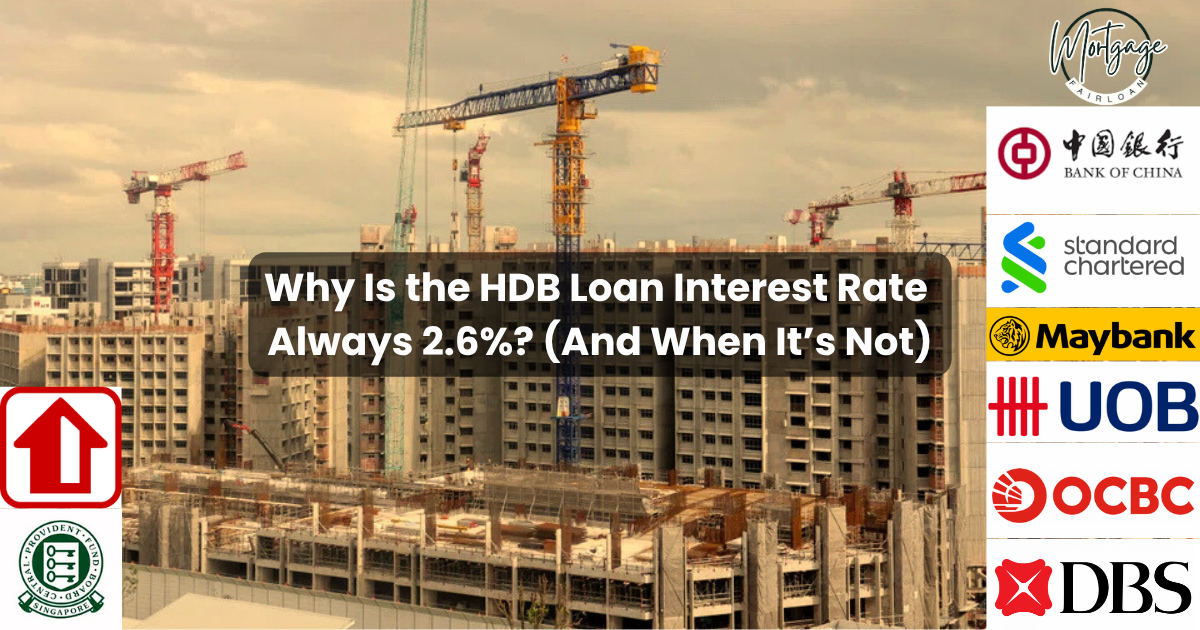- Insights & Updates
Latest News
By Chief Analyst
September 28, 2025In Singapore, the home loan is often the single largest debt a household will carry. With property prices among the highest in the world, even modest homes come with mortgages that can stretch 20 to 30 years.
Understandably, many Singaporeans ask the same question: should I clear off my home loan early?
The answer is not as simple as yes or no. It depends on personal values, financial goals, and opportunity cost. Clearing your loan may bring peace of mind and save interest, but it also ties up cash or CPF funds that could be deployed elsewhere. This guide explores the advantages and disadvantages of using cash, CPF, or a combination to repay your mortgage early, and whether it makes financial sense in today’s context.
Paying Off With CPF: The Accrued Interest Dilemma
For most Singaporeans, the default way of paying for housing is with CPF Ordinary Account (OA) funds. While convenient, this comes with an important caveat: CPF accrued interest.
Every dollar used from CPF to pay for housing accrues a notional interest of 2.5% per year, which must be refunded back to your CPF account when you sell the property. If you have used large sums over many years, this amount can grow substantially and reduce your cash proceeds upon sale.
Example of a negative sale
- Purchase Price: $400,000
- CPF Used (downpayment + monthly loan repayments over 10 years): $300,000
- Accrued Interest (2.5% p.a. over 10 years): ~$180,000
- Total CPF to Refund: $480,000
- Sale Price after 10 years: $450,000
When the flat is sold at $450,000, the owner must refund $480,000 into CPF (principal + accrued interest). But the sale proceeds are only $450,000, which is $30,000 short.
This is what is called a negative sale; the sale proceeds are insufficient to cover the CPF refund. The shortfall does not need to be topped up in cash (provided the property is sold at market value approved by HDB/CPF Board), but the CPF refund is capped at the sale price.
This highlights why heavy reliance on CPF for housing can backfire when property appreciation is modest.
Paying Off With Cash: The Opportunity Cost
If you have substantial savings, using cash to clear your mortgage might sound attractive. After all, you immediately reduce debt and stop paying interest to the bank.
But the key question is: is there a better use for that cash?
Mortgage rates in Singapore fluctuate with benchmarks like SORA. Over the past decade, the effective average interest rate has been around 2.5%. If you have investment opportunities that can consistently yield more than 2.5% after risk adjustment, you may be financially better off investing your cash rather than repaying your loan.
For example:
- Investing $300,000 in a conservative portfolio yielding 4% per year would generate about $12,000 annually, which is higher than the $7,500 saved annually from clearing a $300,000 loan at 2.5%.
- Over the course of 10 years, the difference compounds significantly in favour of investing, provided you can stomach risk and market volatility.
Thus, using cash to clear a mortgage is not always the most financially efficient move, unless you highly value being debt-free or have no better investment alternatives.
Using a Combination of Cash and CPF
Some homeowners choose a hybrid approach; using both cash and CPF to service or clear a loan. This can balance liquidity needs and accrued interest concerns.
One strategy is to pay down CPF usage earlier to stop accrued interest from compounding, while switching repayments to cash if you can afford it. By doing so, you protect your CPF balance and let it grow at its guaranteed rate (2.5% to 3.5%). Remember that the first $20,000 in OA earns 3.5%, while balances above that earn 2.5%.
This approach allows CPF to act as a “bond-like” asset in your portfolio, earning steady interest, while still reducing mortgage exposure.
HDB vs Private Property: Key Differences
The decision to clear your mortgage also depends on the type of property you own.
HDB Flats
For HDB owners, one important limitation is that you cannot take an Equity Term Loan (ETL). This means once you clear your mortgage, the only way to access your property’s value is to sell the flat. If you ever need urgent liquidity, repaying fully may leave you “asset-rich but cash-poor.”
Private Property
For private property owners, the situation is different. Even if you clear your mortgage, you can later extract equity through an ETL, subject to TDSR (55%) and income checks. This flexibility makes it less risky to pay down a private condo loan early, since you can tap equity in the future if needed.
Find out more about Equity Term Loan (ETL) here.
Cultural and Psychological Factors
Beyond numbers, cultural attitudes matter. In Asia, many homeowners prefer to be debt-free as early as possible. For them, the emotional security of owning a home outright outweighs the potential financial benefits of leveraging debt for investments.
Other buyers, especially younger and more financially savvy individuals, may view mortgages as a “cheap” form of leverage compared to higher-yield investments. They prefer to keep debt manageable but not necessarily zero, to maximise long-term returns.
Ultimately, the decision comes down to personal comfort. Some people sleep better knowing their home is fully paid off. Others sleep better knowing their capital is working harder elsewhere.
CPF Accrued Interest vs CPF Growth
A subtle but important point is that clearing CPF housing usage can sometimes be more attractive than clearing the bank loan. This is because once you refund CPF, your funds start earning guaranteed interest again, 2.5% on balances above $20,000 and 3.5% on the first $20,000 in OA.
For example, if you refund $100,000 into CPF OA after clearing your housing loan, that sum could generate $2,500–$3,500 annually, compounding risk-free. This makes CPF a uniquely strong tool, compared to cash that may sit idle in a bank account earning less than 1%.
Is It Worth It?
So, should you clear your Singapore home loan? The answer depends on:
- Your financial situation – Do you have ample cash reserves for emergencies after paying down the loan?
- Your investment opportunities – Can your capital earn more than 2.5% safely elsewhere?
- Your property type – HDB owners may want to retain some liquidity instead of locking everything into the flat. Condo owners have ETL as a fallback.
- Your personal values – Do you prioritise being debt-free, or do you prefer optimising returns?
For some, the peace of mind is priceless. For others, maximising capital efficiency is the goal. A balanced approach, partially reducing loan, limiting CPF usage, and investing the rest, often works best.
Conclusion
Clearing your home loan in Singapore can be financially liberating, but it comes with trade-offs. Paying with CPF means accrued interest eats into your eventual cash proceeds, while paying with cash carries an opportunity cost. HDB owners face liquidity constraints without ETL, while private property owners have more flexibility.
Ultimately, the “right” answer is not purely financial. It depends on your comfort with debt, your need for liquidity, and your ability to invest productively. For many Singaporeans, the best strategy lies somewhere in between: reduce reliance on CPF to curb accrued interest, maintain a manageable loan for flexibility, and let CPF and investments grow steadily.
In the end, the decision to clear your home loan is less about numbers and more about aligning your finances with your life goals.
Explore related content by topic
Your circumstances, total loan quantum, income stability, HDB vs private, expected sale or upgrade horizon, should guide your choice
Why Is the HDB Loan Interest Rate Always 2.6%? (And When It’s Not)
The HDB loan rate stays at 2.6% because it’s pegged 0.1% above the CPF Ordinary Account rate. While stable, not everyone qualifies. With banks now offering fixed packages around 1.88%, some borrowers may benefit more from a well-timed bank loan strategy.

